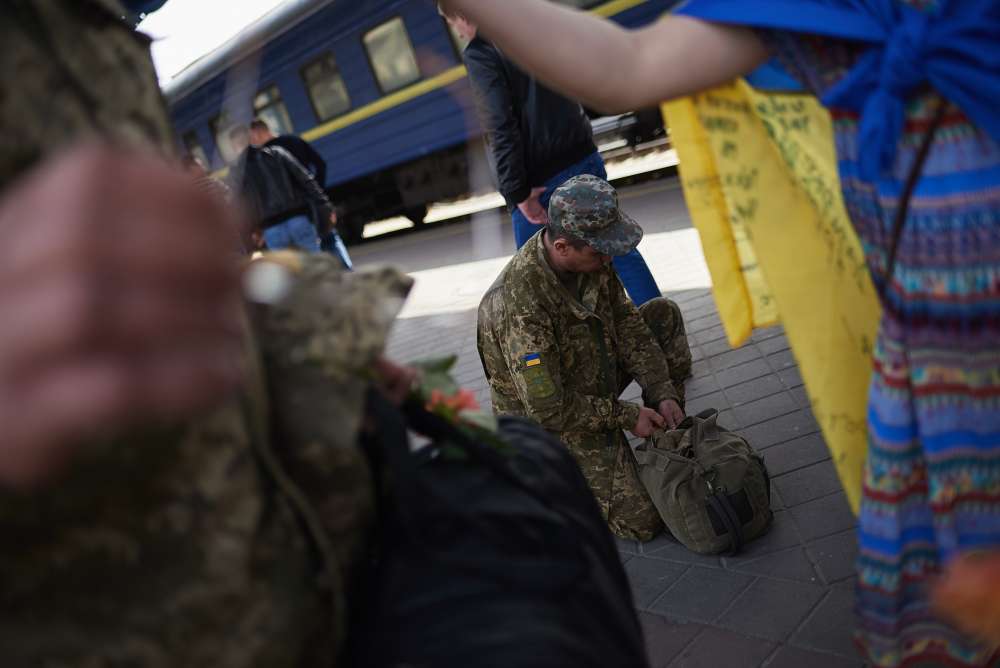The Long Shadow of Donbas
Reintegrating Veterans and Fostering Social Cohesion in Ukraine

Almost 400,000 veterans who fought on the Ukrainian side in Donbas have since returned to communities all over the country. These former soldiers constitute an important societal and political stakeholder. While Ukraine is simultaneously struggling with internal reforms and Russian destabilization efforts, the reintegration of these veterans constitutes a critical determinant for the country’s future.
The reintegration measures currently in place are insufficient. They take the form of state-sponsored social benefits that government officials, civil society actors and veterans alike consider inadequate. Not only are these benefits outdated, they can also be hard to access. Given the administrative hurdles to receiving veteran status, the exact number of Donbas veterans is unknown and no relevant socio-demographic data has been systematically collected. Some of the most significant challenges veterans face involve the complex system of healthcare provisions, as well as the absence of a comprehensive policy to support psychosocial rehabilitation. A difficult economic climate, paired with employers’ pronounced biases, has led to a situation in which many veterans have difficulties finding a job that provides a sense of purpose and helps establish a new routine. As a consequence, veterans often struggle with problems including substance abuse, aggression and suicidal tendencies.
There are three major obstacles to the successful reintegration of veterans in Ukraine: 1) the lack of ministerial capacity and intra-governmental cooperation, 2) the inadequately addressed risk of political marginalization and radicalization and 3) increasing societal divisions leading to the alienation of veterans as a social group. Administratively, the Ukrainian Ministry of Veteran Affairs (MoVA) has insufficient political buy-in, funding and administrative reach to formulate and implement a comprehensive strategy for veteran reintegration. In addition, cooperation with Ukraine’s powerful Ministry of Defense (MoD) and Ministry of Internal Affairs (MoIA) remains a challenge. On a political level, veteran alienation poses the risk of driving a subset of veterans into the arms of radical actors. This radicalized fringe currently dominates the conversation on veterans’ political views, which makes the general population suspicious of all veterans. On a social level, local communities have not sufficiently addressed reintegration. Existing stereotypes of veterans increasingly translate into discrimination. As a consequence, veterans often restrict their close personal associations to their comrades-in-arms, which enhances the risk of creating social enclaves.
Political actors in Ukraine need to step up their efforts to formulate and implement a coherent policy on veteran reintegration. While veteran affairs are complex and the Ukrainian government’s resources are limited, the societal stakes are too high to leave this issue unaddressed.
Most urgently:
- Ukraine’s ministries should address veteran reintegration by establishing a program with clearly defined deliverables which will continue until its targets are met.
- Ukraine’s Ministry of Finance (MoF) and the Verkhovna Rada should increase the MoVA’s funding and staff, both in Kyiv and in its regional offices.
- The MoVA, in cooperation with the MoD and the MoIA, needs to address data gaps regarding veterans in order to formulate a coherent policy and to counter stereotypes.
- Government, civil society and international actors should strengthen community engagement between civilians and veterans to avoid the creation of social enclaves. A conversation about the reintegration of Donbas is essential and cannot be left to radical groups with the loudest voices.
- The Ukrainian Ministry of Health (MoH) and the MoVA should strengthen their provisions for both physical and mental healthcare for veterans.
- International actors should invest more political and financial capital in veteran reintegration in Ukraine and disentangle veteran programming from the conflict zone.
The full study is available for download in English and in Ukrainian.

This study is part of a project funded by the Konrad-Adenauer-Stiftung.







